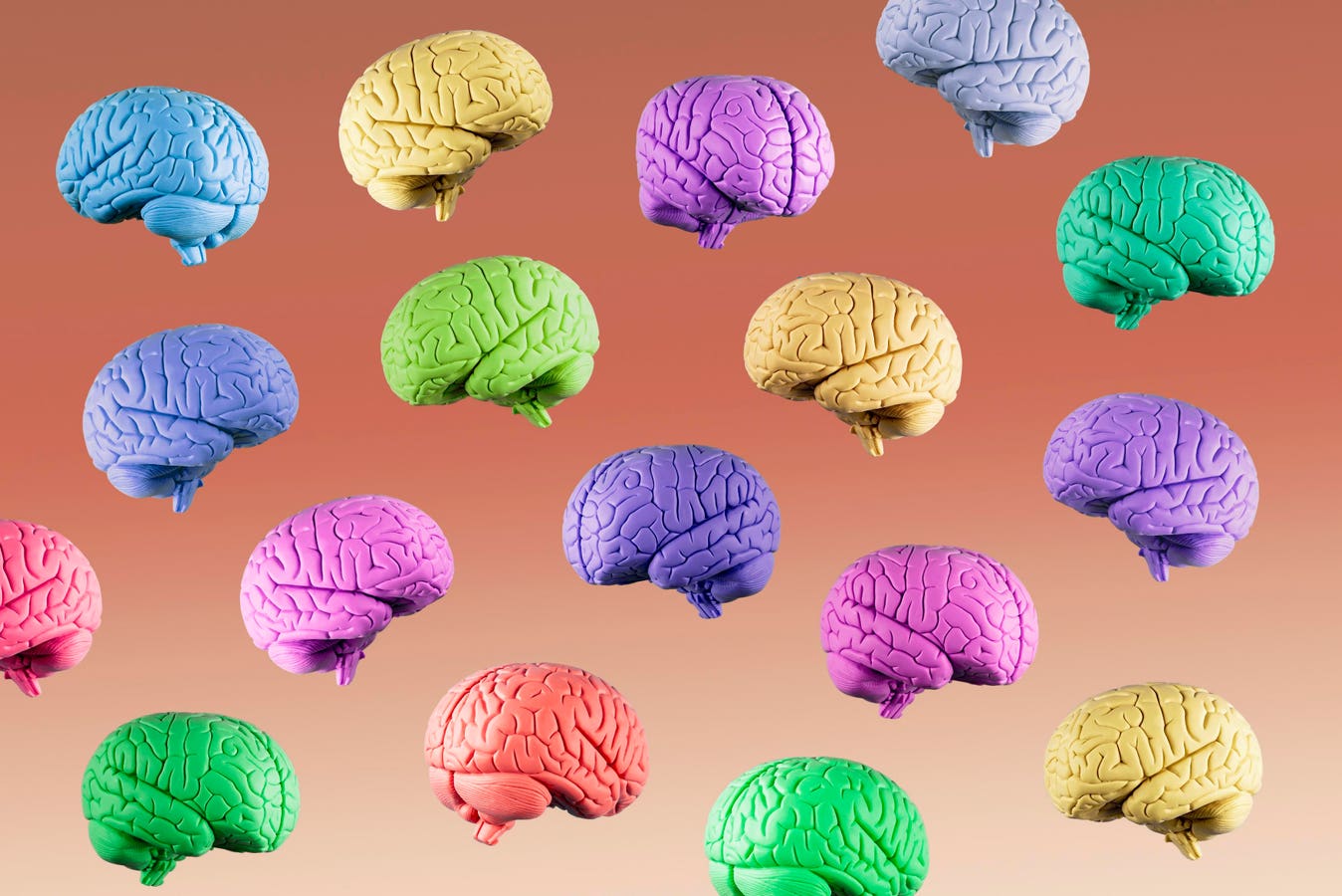Health
Seniors braving cognitive decline

Blue, green, yellow, purple and orange human brains floating in the air on gradually turning brown … [+]
It’s no secret that cognition begins to decline with age. That one friend’s birthday is becoming increasingly difficult to remember, and you may forget where you put your glasses or your wallet. Our thinking also begins to slow down and occasionally becomes muddled or confused. This is simply a natural and inevitable part of growing older.
Or is it?
A new study published in The Journal of Neuroscience confirms that a lucky few, so-called “super-agers,” maintain the brain health of someone aged 50 or 60, despite actually being 80 or older. The findings show that such super-agers lose less white matter – a type of brain tissue associated with memory and cognitive acuity – than others their age.
White matter: the brain’s highway system
Our brains are made up of two main types of tissue: gray matter and white matter. Gray matter often steals the spotlight when it comes to discussions and research surrounding cognition. This is not surprising; it is the part of the brain that contains the neurons, making it the control center for complex brain functions such as learning, memory and reasoning.
White matter, on the other hand, is located deeper in the brain. Its main role is to connect different parts of the brain together, like an extensive transport network. It helps transport the electrical impulses that allow neurons to communicate with each other. The same electrical impulses that allow other parts of our body to transmit information to neurons, such as when you want to move a finger or the pain you feel after stubbing your toe.
Increasingly so are we come to understand that the white matter of the brain is as important to cognitive health and functioning as the gray matter. Without the “highways” connecting them, different parts of the brain cannot properly share information or coordinate functions. The end result is a breakdown of cognition.
Super-Agers hold on to their white matter
To find out what sets super-agers apart from other older adults, the researchers worked with 119 octogenarians. Of these, 64 were super-agers. The remaining 55 showed normal memory and reasoning skills for their age. The team of scientists followed the eighty-year-old volunteers for ten years, testing their memory and thinking skills, taking regular blood samples and undergoing multiple brain scans. The octogenarians were also asked about their lifestyle, including questions about their exercise habits, their eating habits and their smoking and drinking habits.
The main difference between super-agers and typical older adults came down to white matter; while the normal adults lost a significant portion of white matter as they aged, the super-agers did not. This was especially pronounced in the hippocampus and entorhinal cortex, two brain areas closely linked to memory. The super-agers also enjoyed better connectivity between areas at the front of the brain, a place involved in many different parts of cognition.
Importantly, none of the volunteers showed any signs of Alzheimer’s disease, easing concerns that changes in cognition or memory were in fact affected by the disease.
Can You Become a Super-Ager?
The question on everyone’s tongue is of course: “How do I become a super-ager?” Unfortunately, that is not an exact science. When the researcher looked back at the lifestyle questionnaires, he noticed that there was an unexpected amount of overlap between the habits of super-agers and those of typical older adults. For the most part, the two groups shared a similar diet, got a similar amount of sleep, and smoked and drank a similar amount. Even exercise, a key measure of healthy aging, was largely the same between the two groups. Although super-agers tended to be more active in middle age, they were no more active than their counterparts in old age.
While we’d all like a simple five-step program to become super-agers, it seems like this has more to do with the genetic lottery than any lifestyle. Super-agers are probably quite rare; Emily Rogalski, professor of neurology at the University of Chicago, estimates that less than 10% of the patients she sees fall into the super-ager category.
For now, we know that super-agers lose white matter more slowly than most older adults. This explains why they maintain healthy brain function, including sharp memory and quick reasoning, into old age. But what remains to be discovered is why super-agers actually lose white matter more slowly. In other words, we understand the protection mechanism, but we do not yet understand which factors decide who is protected.
Although lifestyle habits do not appear to play a causal role this time, there is an abundance of evidence that living a healthy life – with plenty of physical activity, deep social connections and a healthy diet – helps increase lifespan and extend the ‘health span’, or the number of years that you spend in good health.











